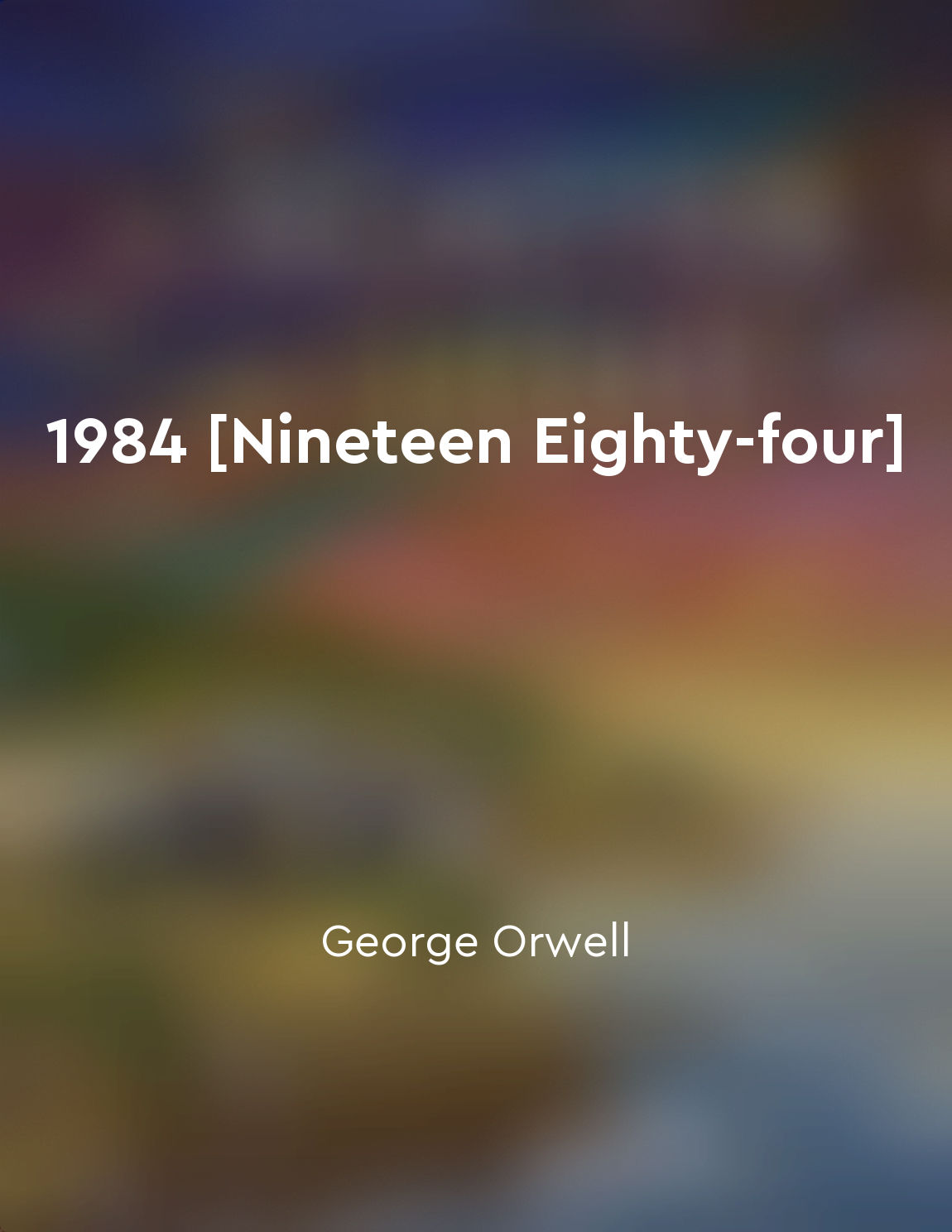The past is rewritten to serve the Party's agenda from "summary" of Nineteen Eighty-Four by George Orwell
In the world of Ingsoc, where Big Brother reigns supreme, the past is not fixed and immutable. Instead, it is constantly being rewritten to align with the Party's ever-changing agenda. History, as it is presented to the citizens of Oceania, is a fluid and malleable entity, subject to the whims of those in power. The Party's Ministry of Truth is responsible for altering and fabricating historical records to ensure that they reflect the current Party line. Winston, the protagonist of the story, works at the Ministry of Truth and is tasked with rewriting past newspaper articles to match the Party's version of reality. He is acutely aware of the fact that the truth is irrelevant - all that matters is what the Party wants people to believe. The Party's manipulation of history serves multiple purposes. By controlling the past, they are able to control the present and shape the future. If the Party can dictate what people remember and believe about the past, it can effectively shape their perception of reality. This allows the Party to maintain its grip on power and suppress any dissent or opposition. The concept of rewriting the past to serve the Party's agenda is a central theme in the novel. It underscores the extent to which the Party is willing to go to maintain its control over the people of Oceania. By erasing and altering historical facts, the Party is able to create a narrative that justifies its authoritarian rule and perpetuates its grip on society.- The manipulation of history in Nineteen Eighty-Four serves as a cautionary tale about the dangers of totalitarianism and the power of propaganda. It highlights the ease with which those in power can distort the truth to suit their own purposes, and the importance of being vigilant in the face of such manipulation.
Similar Posts
Inclusive education benefits all students
By including students with disabilities in regular classrooms, all students benefit. When students with disabilities are includ...
Humanity is stripped away by the Party
The Party's relentless pursuit of power and control has led to the erosion of humanity among its citizens in Oceania. Through c...

Inhumanity of Party destroys individuality
The Party's relentless pursuit of power and control over its citizens is evident in its systematic destruction of individuality...
Surveillance state
The idea of a society constantly under watch, monitored at every turn, is a central theme in both the novels "Animal Farm" and ...
Nationalism can lead to exclusion and conflict
The idea that nationalism can give rise to exclusion and conflict is a crucial aspect of the way in which people come together ...
Hays grapples with the consequences of his actions
Hays found himself facing the aftermath of his decisions, forced to confront the repercussions of his choices. Every action he ...

Proles represent oppressed working class
The Proles, a term derived from the word "proletariat," make up the majority of the population in Oceania. They are the working...

